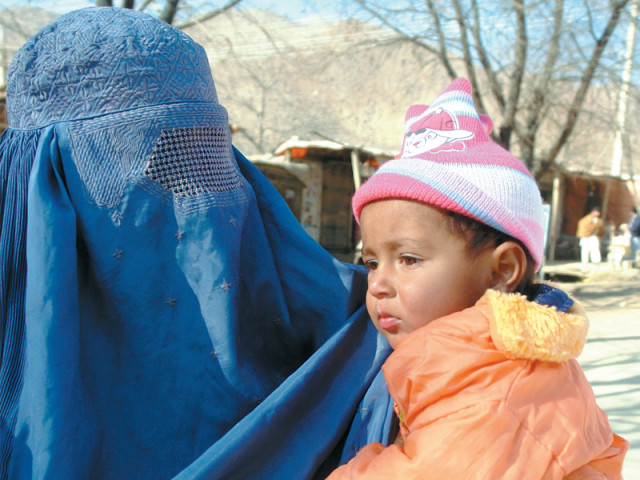Half of Pakistani women getting pregnant before they intend to
Gynaecologists affiliated with John Hopkins share research with local doctors.

She was speaking at a programme organised on Wednesday by the Society of Obstetricians and Gynaecologists of Pakistan in collaboration with Pakistan Medical Association.
McKaig thus talked about encouraging family planning to improve child health. She also talked about postpartum (the period just after pregnancy) family planning. Since there is a higher risk of a return to fertility, postpartum family planning should continue for at least one year after the delivery. To control the pregnancies, she advised the use of contraceptives, breastfeeding the baby and the use of postpartum intra-uterine contraceptive device (PPIUCD).
Another speaker was Dr Jeffrey M Smith, who is a consultant gynaecologist at the Johns Hopkins Bloomberg School of Public Health. He also shared the findings of research conducted in Afghanistan and Bangladesh. He said that research has proven that if a mother passes away in childbirth there is more than 75 per cent chance that her baby will not survive. On the other hand, the baby is almost unaffected if it is the father who passes away.
According to the study, the infant mortality rate was 77 per cent in Afghanistan and 76 per cent in Bangladesh, for the babies whose mothers had died in childbirth.
In his presentation, he specifically focused on labour care and reducing the infant mortality rate during childbirth. His suggestions for improving the chances of survival for childbearing mothers were strict vigilance and allowing companionship to women, ensure supportive second-stage management, manage hypertension during birth and ensuring that the baby gets sufficient oxygen after being delivered.
At the session, doctors lamented that there had hardly been any progress on the Millennium Development Goal 5, which deals with improving the maternal mortality rate (MMR), which is 377 per 100,000 women. They advocated family planning to prevent the maternal and infant mortality rate.
Prof. Sadiqua N Jafarey, the president of the National Committee for Maternal and Neonatal Health, said that a pilot project was being started at Jinnah and Sobhraj hospitals, in which postpartum intra-uterine contraceptive devices will be inserted in women. If successful, the project will also be implemented by the government.
Dr Shershah Syed, the ex president of SOGP, said that the maternal health structure needed to be reorganised completely. More resources need to be allocated to strengthen primary health care services and emergency obstetric care, provide affordable and accessible reproductive health services and encourage people to accept family planning. He said that to achieve the Millennium Development Goal, Pakistan needs to reduce the maternal mortality ratio by three quarters for till 2015.
Published in The Express Tribune, February 16th, 2012.


















COMMENTS
Comments are moderated and generally will be posted if they are on-topic and not abusive.
For more information, please see our Comments FAQ